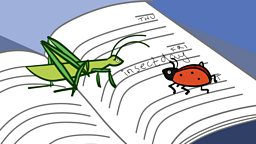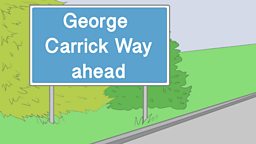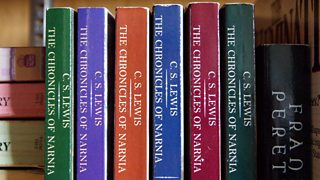The funny words that kids invent
has been looking at the fantastic words that children invent and how they play with language with often quite brilliant results. Children's 'mistakes', invented words and creative word play can tell us a lot about how we all acquire language. Let's have a look at some of the brilliant examples from listeners and the ones ...
Crooks and grannies (nooks and crannies)
Insect days (inset days)
Strangled eggs (scrambled eggs - clearly the words sound very similar, and something drastic happened to those eggs so that makes sense)
Oglettes (omelettes - because it's hard to say "m" followed by an "l")
Snotrils (nostrils)
Jumpolines (trampolines)
Hippyhoppymus (hippopotamus)
Needs and poodles (pins and needles - ripe for interpretation, as we've heard of 'fizzy feet' and 'peas and noodles' also being used)
Oopsaglue (superglue)
Spaghetti car bananas (spaghetti carbonara)
Hockle bockle (hot water bottle)
Suggestive biscuits (digestive biscuits)
The fourth head (forehead)
Under the troll (under control)
Dalek bread (garlic bread)
Grabs (crabs) and grabsters (lobsters)
Farmer Christmas or Farmer Chemist, and his trusty Roodog (Father Christmas and Rudolph)
Marks'n'spensive (Marks & Spencer)
Alligator (escalator)
Uppity or helicokter (helicopter)
Emergent sheeps (emergencies - @lynn_guist tweeted)
Lonely child (an only child - @MarkLathamUK tweeted)
Ashunk or heffalump (elephant) ['Elephant' does not the follow the regular stress pattern of the English language which essentially says that words come in two syllables with a string weak pattern, also called a trochee. Since 'elephant' does not match that it makes sense to think that it may be a compound word made up of a regular two-syllable word 'heffa' and a one-syllable one, 'lump'. Since they are kind of lumpy that makes sense too.]
Field chickens (pheasants - @SRanceRiley tweeted)
George Carrick Way (dual carriage way)
When children are reaching for the right word, two things can happen:
1) There is a sound/phonological error - the made-up word of the child is not random, the sounds in it almost match the sounds of the original, but not quite. In fact, the 'mistake' is often at the end of the word rather than at the beginning.
2) The meaning/context error - the child comes up with something meaningful, and that meaning is somehow associated with the original meaning. Perhaps the meaning connection is not immediately obvious to the adult, but it is always there, which is what makes these creative words incredibly funny.





More from Radio 4 in Four...
-
![]()
Michael Rosen and Dr Laura Wright explore children's linguistic leaps of imagination.
-
![]()
Terms and expressions that have vanished or been banished from your dictionary.
-
![]()
Ernie Rea discusses the role of religious language in C.S. Lewis' epic.
-
![]()
Transform your small talk from bland clich茅 to earth-shattering rhetoric.




